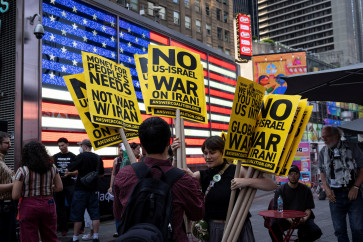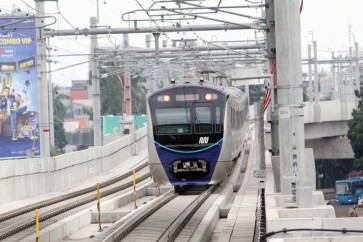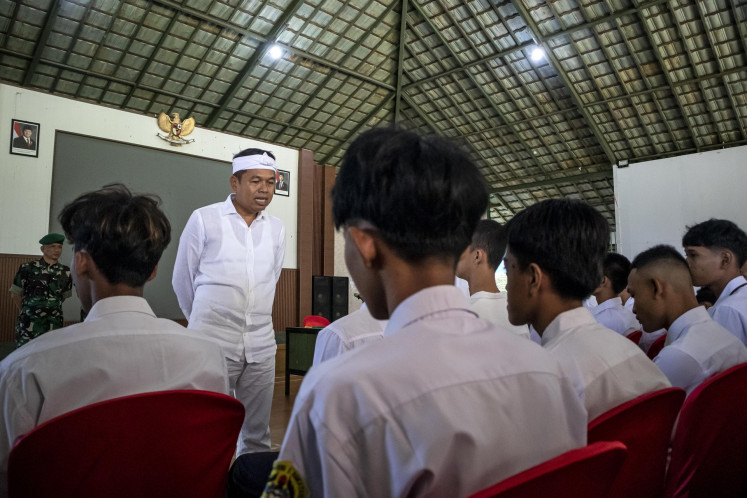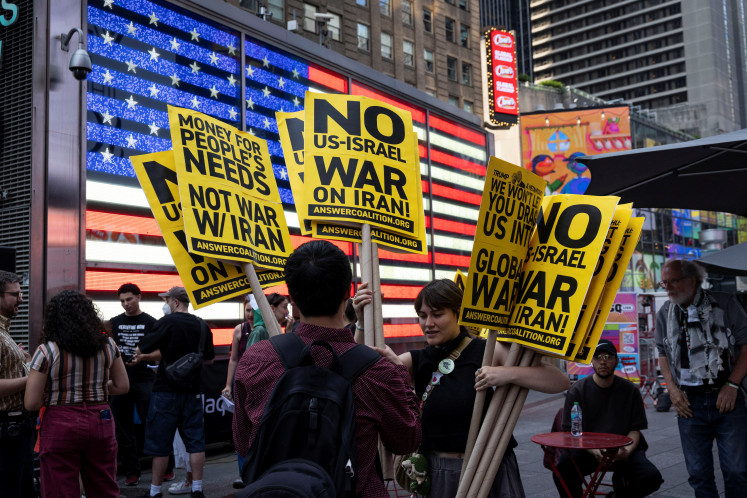Govt eyes additional revenue from plastic wrapping excise
Consumers might need to dig deeper into their pockets to buy bottled mineral water, snacks, chocolate, and many other food and beverage products should the government move ahead with its plan to impose excise on plastic packaging later this year
Change text size
Gift Premium Articles
to Anyone

C
onsumers might need to dig deeper into their pockets to buy bottled mineral water, snacks, chocolate, and many other food and beverage products should the government move ahead with its plan to impose excise on plastic packaging later this year.
Last month, the Finance Ministry announced a plan to impose excise on all products using plastic packaging in a move to help jack up state revenue.
The ministry said it was still calculating the amount of the proposed excise duty, but it suggested that it would not exceed Rp 200 (15 US cents) per item.
The government is targeting to collect Rp 146.6 trillion from excise duty this year. However, as of the first quarter, realization only stood at Rp 7.9 trillion, or 5.4 percent from its target, the ministry’s data shows.
The ministry also argued that the new excise policy would help Indonesia reduce its massive plastic consumption.
“Our main focus [in imposing the excise] is to protect the environment,” Finance Ministry’s customs and excise policy head Nasrudin Djoko Surjono said recently, adding that the government would include the planned policy in the revised state budget draft submission to the House of Representatives at the end of this month.
Data from the Environment and Forestry Ministry shows that people consume up to 9.8 billion plastic bags every year in Indonesia, with 95 percent of those being made with plastics that take considerable time to break down naturally.
In February last year, the ministry issued a circular stating that retailers should start moving away from using plastic bags. Since earlier this year, a number of retailers have been charging customers Rp 200 for each plastic bag they give out.
Responding to the government’s plan to impose excise duty on plastic packaging, 16 business associations have expressed their opposition to the plan, arguing that it would harm end-users.
“The proposed policy, in the end, will affect consumers as retailers will put the burden of the excise
duty onto them by increasing prices,” Edi Rifai, the deputy chairman of Indonesian Olefin, Aromatic and Plastic Industry Association (Inaplas), told The Jakarta Post over the phone.
He added if the government’s main goal was to protect the environment from plastic waste, it should think about implementing a good waste management system rather than imposing excise.
Center for Indonesian Taxation Analysis (CITA) executive director Yustinus Prastowo expressed a similar concern. He also criticized the government for using excise policy to increase revenue instead of controlling the distribution of certain goods deemed harmful to society, like tobacco and alcohol.
The proposed policy, he said, suggested the government wanted people to increase its consumption of plastics in order to generate more revenue.
“The logic and orientation of the excise [policy] is wrong as it doesn’t reflect the natural objective of such a policy,” he said.
Sara, a 32-year-old school teacher in Jakarta, also expressed her objection to the plan.
“The price of food and beverages is already expensive, it’s not fair if we need to pay more,” she said. (win)
----------------
To receive comprehensive and earlier access to The Jakarta Post print edition, please subscribe to our epaper through iOS' iTunes, Android's Google Play, Blackberry World or Microsoft's Windows Store. Subscription includes free daily editions of The Nation, The Star Malaysia, the Philippine Daily Inquirer and Asia News.
For print subscription, please contact our call center at (+6221) 5360014 or subscription@thejakartapost.com









